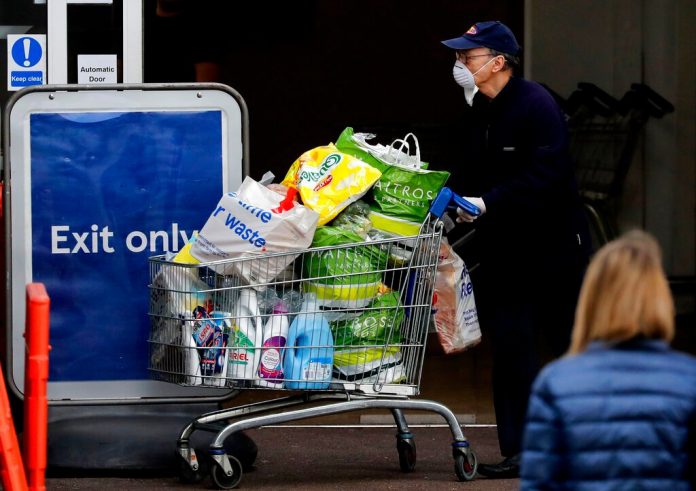
LONDON: With prospects for a post-Brexit trade deal with the EU looking precarious, Britain’s retail industry repeated a warning on Friday that shoppers faced higher food prices from next year if new tariffs were imposed in the absence of an agreement.
Britain’s Brexit transition period ends on Dec 31. In the absence of a deal, Britain would trade with the European Union on World Trade Organisation terms, meaning new tariffs.
Prime Minister Boris Johnson said on Thursday there was a “strong possibility” Britain would not secure a deal.
“Currently, four-fifths of UK food imports come from the EU and without a tariff-free deal, supermarkets and their customers face over £3 billion in tariffs from 2021,” said Andrew Opie, director of food and sustainability at the British Retail Consortium (BRC).
The BRC said tariffs would force food retailers to raise prices to mitigate the additional costs.
It said many non-food retailers would also face large tariff bills for EU-sourced products, including clothes and ceramics.
Under Britain’s new tariff schedule, which would apply from Jan 1 if a deal is not agreed, 85% of foods imported from the EU would face tariffs of more than 5%.
The average tariff would be more than 20%, including 48% on beef mince, 16% on cucumbers and 10% on lettuce.
The BRC also highlighted the challenges January posed for seasonal produce, with a much higher proportion of fruit and vegetables imported from the EU at that time of year.
For example, Britain sources 85% of its tomatoes from the EU in January versus 30% in June.
It said retailers had increased their stock of tins, toilet rolls and other longer life products as part of their planning for a no-deal Brexit.
But it said ongoing uncertainty surrounding new checks and red tape from Jan 1 meant disruption in the supply of many goods.


